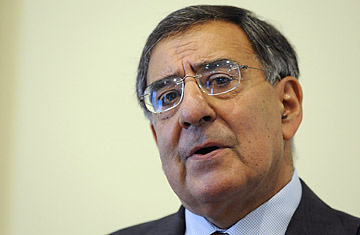
U.S. CIA Director Leon Panetta
Did the CIA deliberately keep its own director in the dark about a secret program? The latest storm to break over Langley emerged after the New York Times reported over the weekend that former Vice President Dick Cheney had ordered that the program be kept from Congress's oversight committees. Apparently, CIA Director Leon Panetta was told of the program's existence on June 23, four months after he took over the agency. Within 24 hours, he had canceled it and briefed the congressional oversight committees of its existence. Amid the uproar over how and why the agency kept Congress in the dark, one question that has escaped attention is, Why didn't CIA officials tell Panetta sooner?
The details and specific target of the program have yet to be made public. The New York Times, citing unnamed officials, says that the CIA had plotted since 2001 to find and kill al-Qaeda leaders abroad. Two former CIA officials tell TIME there's another, somewhat less dramatic, possibility: a plan to conduct domestic surveillance. Spying on Americans is outside the CIA's purview and would be highly controversial — good enough reason for Cheney to want it kept under wraps.
The agency is keeping mum on the entire issue, but an official familiar with the matter tells TIME the program wasn't brought to Panetta's attention sooner because it was not operational. "It's a capability that wasn't being used, so it wasn't a front-burner issue," says the official. Another retired official familiar with the details of the secret program says, "It would have been a big deal if it was operational, but since it was not, it's not a big deal."
But several former CIA officers and intelligence experts contacted by TIME found that explanation problematic. For one thing, they say, the mere fact that the program apparently merited Cheney's close attention should have been a red flag. "Even if the program was dormant, the top officials would have known about Cheney's instructions, and they should have told Panetta right away," says a former operations expert.
Another retired senior official put it more bluntly: "[Given Cheney's interest,] I don't know why the program was not on the new director's desk within his first two weeks on the job." Both former officials asked not to be named. The second official also questioned the argument that the program was not important enough for Panetta's immediate attention. "The speed of Panetta's actions when he was informed tells me that the program was pretty important," he says.
Paul Pillar, a former deputy director of the CIA's Counterterrorist Center, points out that when a new director takes charge, it falls to senior officials to figure out what he needs to know and when. "You have officials one or two rungs down who have to decide what the boss needs to see first and what can wait," he says. Though not shocked that Panetta wasn't told until June 23, Pillar adds, "In retrospect, the [Cheney] angle ought to be sufficient grounds for someone to think, This does deserve the boss's attention."
Panetta's lack of intelligence experience may well have been a factor, since he did not know to look for potential grenades like the secret program. "One of the concerns when he was appointed was that he would be the weak link inside the agency," says Amy Zegart, a national-security expert and professor of public policy at UCLA. But Zegart points out that Panetta isn't alone in his ignorance. "There are two big 'so whats' to the latest news," she says. "One is: What's going on in the Executive Branch that the CIA director doesn't even know about a program that the former Vice President thought was important enough to keep secret? The second is: What's going on in Congress that oversight is so bad?"
